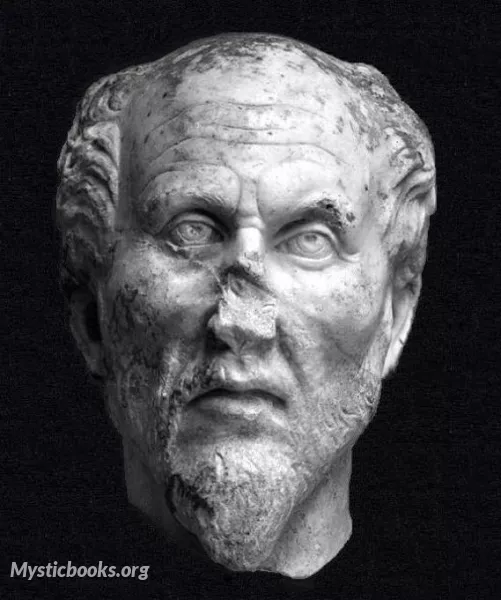
Timeline
Title
Country/Nationality
Plotinus
Plotinus (204/5–270 CE) was a Hellenistic Platonist philosopher, born and raised in Roman Egypt. He is considered the founder of Neoplatonism, a philosophical system that combines elements of Platonism, Middle Platonism, and Aristotelianism. Plotinus's philosophy emphasizes the importance of the One, or the Good, as the ultimate source of all reality.
Early Life and Education
Plotinus was born in Lycopolis, Egypt, around 204 CE. He received a traditional Greek education, studying grammar, rhetoric, and philosophy. In his twenties, Plotinus encountered the philosophy of Ammonius Saccas, a Middle Platonist philosopher who taught in Alexandria. Ammonius's teachings had a profound impact on Plotinus, and he became one of Ammonius's most devoted students.
Philosophy
Plotinus's philosophy is complex and sophisticated, but it can be summarized in a few key points. First, Plotinus argues that the One, or the Good, is the ultimate source of all reality. The One is beyond being and non-being, and it is the source of all things that exist.
Second, Plotinus argues that all reality emanates from the One in a descending hierarchy. The first level of emanation is the Intellect, which is the realm of ideas and forms. The Intellect is followed by the Soul, which is the realm of life and consciousness. Finally, the Soul emanates the physical world, which is the lowest level of reality.
Third, Plotinus argues that the goal of human life is to return to the One. This can be achieved through a process of purification and illumination. Purification involves freeing oneself from the distractions of the physical world and the lower levels of reality. Illumination involves gaining knowledge of the One and becoming united with it.
Notable Works
Plotinus's philosophical teachings are contained in his Enneads, a collection of 54 treatises that were compiled by his student Porphyry after Plotinus's death. The Enneads cover a wide range of philosophical topics, including metaphysics, epistemology, ethics, and psychology.
Death and Legacy
Plotinus died in Rome in 270 CE. He was a prolific writer, and his Enneads have had a profound influence on Western philosophy. His ideas have been taken up by philosophers such as Augustine, Aquinas, and Spinoza. Plotinus is remembered as one of the most important and influential philosophers of the ancient world.
Interesting Facts About Plotinus
- Plotinus was a vegetarian and a teetotaler.
- He was a devout pagan and believed in theurgy, the practice of using magic to achieve union with the divine.
- Plotinus's philosophy was highly influential on the development of Christianity and Islam.
- He was the first major philosopher to write in Greek since Aristotle.
Conclusion
Plotinus was a brilliant and innovative philosopher who made significant contributions to Western thought. His philosophy is complex and challenging, but it is also deeply rewarding. Plotinus's ideas about the One, emanation, and the human soul continue to be relevant today.
Books by Plotinus

Enneads
What is the ultimate source of all reality? The Enneads by Plotinus is a collection of 54 philosophical treatises that explore the nature of reality, the human soul, and the path to union with the divine. Plotinus's philosophy is complex and sophist...